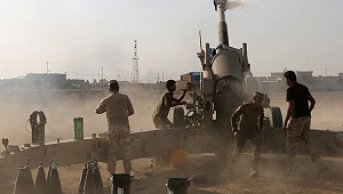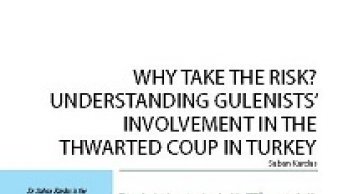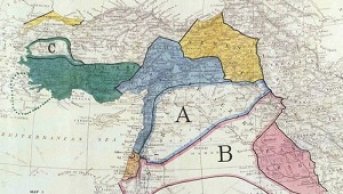Fight Against Double Terrorism, NATO and Turkish Foreign Policy

Heated debate about Turkey’s call for an emergency NATO Council meeting in the framework of the Article 4 of Washington Treaty disappeared conspicuously, after the statement of solidarity by the Allies. To understand this development it is necessary to consider the nature of new security threats, NATO’s ongoing transformation and the meaning of all these for Turkish foreign policy. NATO, which has been going through a major transformation process in the post-Cold War era, undertakes an important role as a political platform besides its military deterrent value for Turkey as part of its collective defense function. In the recent crisis, NATO’s importance for Turkey falls under the same category. At the same time, the fact that anti-DAESH fight is undertaken within the scope of the US-led core coalition inevitably results in Turkey positioning its role in that coalition in the context of the broader issue of its relations with the United States.
Diminishing Visibility of Deterrence Role
NATO Council’s emergency meeting for consultations about Turkey’s security concerns emphasizes the continuity in Turkish foreign policy, particularly in its post-Cold War manifestation. At first, while Turkey prioritizes NATO as an important instrument of deterrence in its security and defense policies, it is also aware that NATO does not provide sufficient guarantee on its own, given the new cycle of insecurity in the region. Even though NATO’s deterrence has enabled Turkey to reinforce its security against conventional threats from the Syrian regime, its actual value on the ground has disappeared as asymmetrical threats emerged. It is today obvious that NATO, which lacks the capacity to tackle with many of these threats, has limited deterrent value against security risks emanating from terrorist groups or other non-state actors.
Once again, Turkey has opted to rely largely on its own capacity in its traditional fight against PKK terrorism. Even though Turkey was displeased with some of its NATO allies’ attitudes towards its fight against PKK, it conventionally refrained from carrying the issue into NATO’s agenda, for it considered the problem as essentially domestic one. For many years, Turkey’s primarily concern has been to defer the criticisms directed at its counter-terrorism measures, while at the same time it struggled to have its fight against PKK terrorism recognized as legitimate.
As the threat of PKK coalesced with other similar threats and acquired a regional character in the new Middle Eastern security environment, Turkey has opted to carry the issue onto NATO’s agenda. NATO’s emergency meeting resulted in supportive statements but no commitment of specific support. Firstly, it shows that Turkey still conducting its fight against PKK with its own means. Secondly, as it will be discussed below, it underscores the fact that the issue of DAESH is addressed within the context of the coalition of the willing. In this regards, it should be emphasized that cross-border air strikes are crucial in terms of demonstrating Turkey’s transformation in military capacity and technological level.
From Deterrence to Political Platform
Latest developments highlight once again NATO’s recently acquired position for Turkish foreign policy. In addition to being a collective defense organization, NATO gradually becomes a political platform that enables Turkey to make its voice heard in the international arena. As a matter of fact, by calling for an emergency NATO Council meeting, Turkey has sought to have the Allies make a political statement of support rather that soliciting direct military commitment. Therefore, Turkey has smartly tested the support of its allies to its struggle against double terrorism, while at the same time finding a way to forestall potential opposition from some of its allies unilaterally.
Since the risk of deterioration in its fight against terrorism cannot be ignored, acquiring the support of the North Atlantic Council at an early stage is very important. It is similarly crucial that Turkey was able to ensure the commitment of its allies on the eve of a new wave of enhanced participation into the coalition, which have been expecting further action by Turkey. By this means, Turkey has guaranteed its allies’ support against further risks that may emerge during the fight against DAESH.
More importantly, Turkey has sought to hinder the PKK’s moves to gain advantage of the recent legitimacy of Kurdish groups in the context of the anti-DAESH struggle. It was well known that PKK wanted to get itself out of terrorist organization lists by capitalizing on the recent sympathy towards Kurds internationally. Under such circumstances, Ankara has ensured a sound, legitimate basis for its anti-PKK operations by guaranteeing the high level support of its allies for its military response to PKK’s terrorist attacks in Turkey. The impact of Turkey’s moves has been interestingly revealed when the discourse of pro-PKK circles which has shafted from “fighting DAESH gives us a blank check to do anything” toward “have we been betrayed by the West.”
The Coalition and Turkey
At this stage, the role that Turkey is poised to play in the fight against DAESH needs to be examined. Even though NATO has decided to strike against DAESH in NATO’s Wales Summit in September 2014, the military response against DAESH, in the final analysis, came to rely on the “core coalition” that is led by the U.S. It is once again a development that can be interpreted in line with NATO’s transformation after the Cold War. The U.S. course of action that prefers “coalitions of the willing”, even in the military operations that NATO allies participate, underscores a new model, whereby it also utilizes NATO’s assets and capabilities at the operational level. Since new security challenges do not affect all the allies equally, this model is developed as a response to some actual necessities. Turkey, which defines its NATO membership within the framework of its strategic partnership with the U.S., did not refrain from participating in the coalitions of the willing. Especially, as the crises that require the Alliance’s intervention takes place in its close proximity, Turkey has become an indispensable part of NATO’s operations, or those of the coalitions of the willing.
It is clearly seen that the coalition against DAESH has developed according to this model. Turkey has been more engaged with the U.S. than the North Atlantic Alliance and approached the issue of participation in the coalition through the prism of its relations with the U.S. Its rather caution approach on participation to the coalition is related to the special nature of its relations with the United States. In the period ahead, Turkey’s role in the fight against DAESH will evolve according to the mutual understanding with the United States, which is gradually taking shape. The North Atlantic Council’s support for Turkey’s action against double terrorism threat underscores the depth of US-Turkey mutual understanding, considering the U.S. influence over NATO. Turkey’s decision to launch operations against the PKK in an unexpected manner and its ability to garner NATO’s support demonstrates the extent to which the United States is willing to sustain its mutual understanding with Turkey.
The original of this article was published on Turkey Agenda website.









